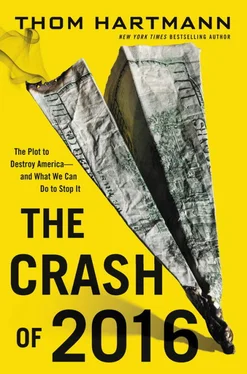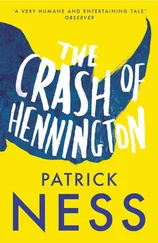With the Supreme Court’s Citizens United decision, President Obama’s fledgling progressive agenda—already badly wounded by stimulus-act debate and the health reform debate—was dead. John Roberts killed it just one year after readministering the presidential oath in the Map Room.
From that point forward, corporations, with their newly acquired golden key to our democracy, jammed the airwaves with hundreds of millions of dollars in campaign advertising to send a message to Congress that there would be political consequences to any decisions made that year.
Only when the 2010 midterm elections finally did come around would the effects of this court decision really be known.
As a result of Citizens United , outside political spending skyrocketed from just $68 million in the 2006 midterms, to over $304 million in the 2010 midterms. That’s a 400 percent increase in corporate cash influencing elections and buying politicians, just ten months after the Citizens United decision.
Royalist Republicans, this time calling themselves Tea Partiers, retook the majority in the House of Representatives, significantly cut into the Democrats’ majority in the Senate, and most important turned a lot of blue state legislatures around the country—in states such as Wisconsin, Michigan, Ohio, and Pennsylvania—red.
Barack Obama’s revolution was officially over after the 2010 midterm elections—the first national elections post- Citizens United .
This is when the Crash of 2016 was sealed.
CHAPTER 10
Masters of the Universe
What’s happened is something that even Marx wasn’t cynical enough to dream about. It’s a financial war of Wall Street not only against labor but against industrial capitalism, it destroys the market.
—Michael Hudson
In 1981, I had a conversation with my friend Dick Gregory. We were on an airplane high above the Atlantic Ocean on our way to Uganda to do relief work, and our conversation turned to America’s unfortunate wars abroad (mind you, this is twenty years before the start of our nation’s most recent decade of military misadventures). It was during that conversation that Dick gave me one of the best insights I’d ever heard on democracy and human nature.
“I don’t know why America always thinks she has to run all around the world forcing people to take democracy at the barrel of a gun,” he said. He paused for a moment, and then added with a sly grin, “When you’ve got something really good, you don’t have to force it on people. They will steal it!”
History proves Dick right. More than two hundred years ago, the American Revolution brought democratic government back to the world from a two-thousand-year exile, and ever since then people have been overthrowing kings, theocrats, and plutocrats across the planet—stealing back democracy. Most recently, it happened in 2011–12 in the Arab world.
During times of crisis, however, this happens in reverse—democracy is surrendered.
As mentioned in chapter 3, this happened in Chile when General Pinochet and the Chicago Boys took over and induced “shock treatment” economics that rapidly transformed Chile into a Royalist paradise.
Before that, it happened in Spain, Italy, and Germany during the last Great Crash. And it nearly happened in America, too, in 1935, had the Business Plot not been foiled.
After the Supreme Court’s Citizens United decision in 2010, our nation, just a few years removed from the 2007–08 financial panic, and on the precipice of the Crash of 2016, was thrust into a fight for its democratic life.
Like a blitzkrieg, the Royalists launched an unprecedented assault on democracy around the globe.
In the United States, they’d learned what had happened after the last Great Crash, when they were banished to the political wilderness for two generations. So this time, they reasoned, if they seized power of the means to enact political and economic change, then nothing would get in their way as they completed their harvesting of the middle class and the entire wealth of the nation.
They would become Masters of the Universe.
In October 2011, Greece’s democratically elected prime minister, George Papandreou, proposed a national referendum on the pending bailout package for his debt-ridden and bankster-conned nation.
Ten years earlier, Goldman Sachs secretly helped Greece hide billions of dollars of debt through the use of complex financial instruments such as credit default swaps. 127
This allowed Greece to meet the baseline debt-to-GDP requirements to enter the Eurozone in the first place. 128
Goldman made similar deals here in the United States, masking the true value of investments, then selling those worthless investments to customers while placing bets that those same investments would eventually fail. The most notorious example was the Timberwolf 129deal, which brought down an Australian hedge fund, and which Goldman Sachs banksters e-mailed each other about, bragging, “Boy, that Timberwolf was one shitty deal.” 130
This sort of behavior by Goldman and other Royalist bankers through the “madness” period of the first decade of the twenty-first century helped inflate very profitable debt bubbles that all eventually popped, most notably the housing bubble in the United States.
The shock wave of the debt bubbles bursting then crossed the Atlantic, hitting Europe and turning Goldman’s debt-masking deal with Greece years earlier sour, thus deepening the crisis.
Always looking ahead, Goldman protected itself from this debt bubble by betting against Greek bonds, expecting that they would eventually fail.
But the main crisis that Greece and other members of the Eurozone faced is that they can’t print their own currency, unlike in the United States.
With only a finite amount of euros in the Greek economy, and hefty obligations to foreign and domestic bankers who’d saddled the Greek people with enormous amounts of debt, the government was facing a default crisis.
Some obligations simply could not be met. Greece either had to tell the bankers to take a hit or tell their own people—their public servants, their pensioners, and their most vulnerable—they have to pony up to pay off the debts run up by the bankers. This is known as “austerity” today, even though it’s the exact same sort of harsh shock economics that the Chicago Boys were perfecting in the 1970s and 1980s.
Greek Prime Minister Papandreou wanted to leave it up to the Greek people to decide if staying in the Eurozone, in exchange for harsh austerity measures, was in their national best interest.
Global bankers panicked, and in less than a week, fearing that the Greek people would tell their creditors to go screw themselves, the bankers at the European Central Bank and the IMF took away democracy in Greece. They forced Papandreou to scrap the idea of a national referendum, and even kicked him out of office for good measure. He was replaced by the former vice president of the European Central Bank, Lucas Papademos.
Even Italian Prime Minister Silvio Berlusconi, whose enormous wealth and national media empire ensured his reelection over and over again despite endless frauds and scandals, was no match for the European technocrats. Berlusconi, too, was forced out of office in 2011 to make sure Italy’s descent into austerity went off without any democratic hitches.
The people of Europe and the world were meant to believe that these nations faced a debt crisis and that radical measures needed to be taken to lower debt-to-GDP levels. However, in nearly every case study in Europe, nations that have endured austerity have actually seen debt-to-GDP ratios increase.
Читать дальше












